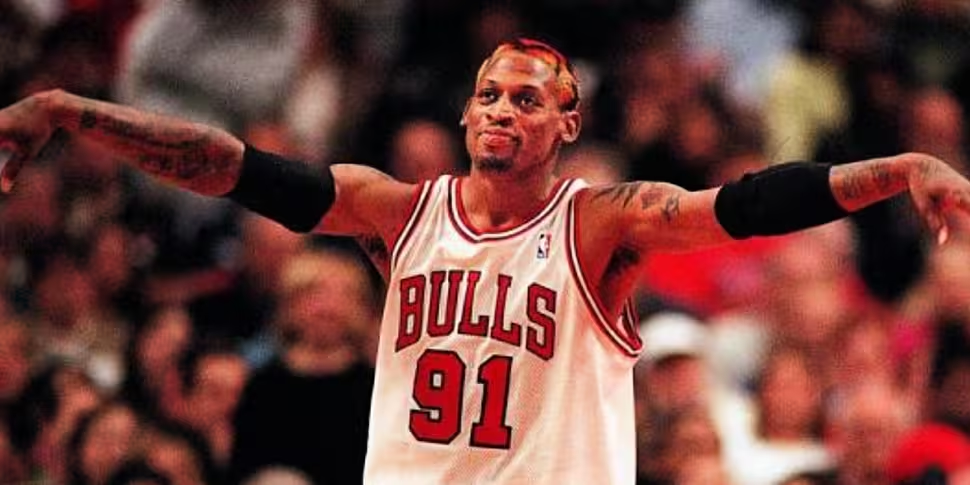Watching 'The Last Dance' gave the strangest feeling; nostalgia for a place in time where I had no business.
The Chicago Bulls were a curious interest for an 11 year-old boy in England, as they were for any sports fan that cared to look. As Michael Jordan laid waste and Scottie Pippen played the strong, silent type, it was someone else that stood out and typified the glamour of that Bulls side.
He was a flash of colourful hair, a bug-eyed, nose-ringed superstar that transcended sport by dint of his difference. He was the archetype of the 'other'. During the first ten minutes of episode three of the documentary, I found myself saying under my breath: 'I forgot how much I fucking loved Dennis Rodman.'
Rodman in conflict
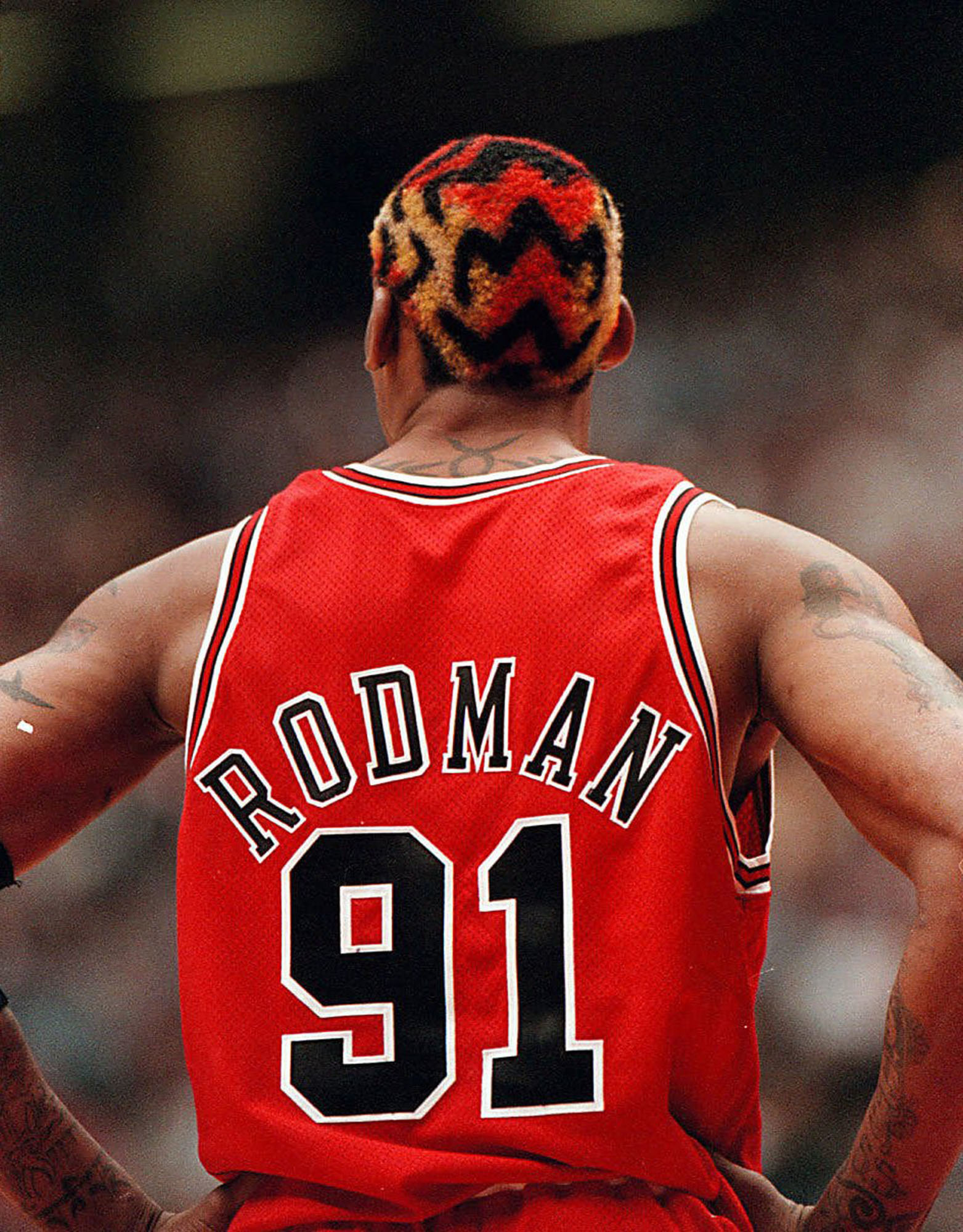
In writing, there are three concepts that help form a good character. Global, local and internal conflicts help to create a rounded personality that allows the author to put the protagonist in any situation and maintain a feel for what they would do or say. Given Rodman's personality, and tendency to become a caricature, these might help explain the Rodman paradox a little better.
Globally, Rodman hated that the world won't accept him for who he is and that he had to 'perform' and look a certain way. More locally, he wants to be wanted by his team-mates, he studies his art but is only fleetingly given recognition for supreme talent. Inside, there appears to be a question of identity. He is attracted to society's outliers, be it late dalliances with Kim Jong-Un or his flamboyant cross-dressing.The cod psychologist would suggest that such things are cries for attention.
So where did that need come from and did it create a unique sports star?
Beginnings
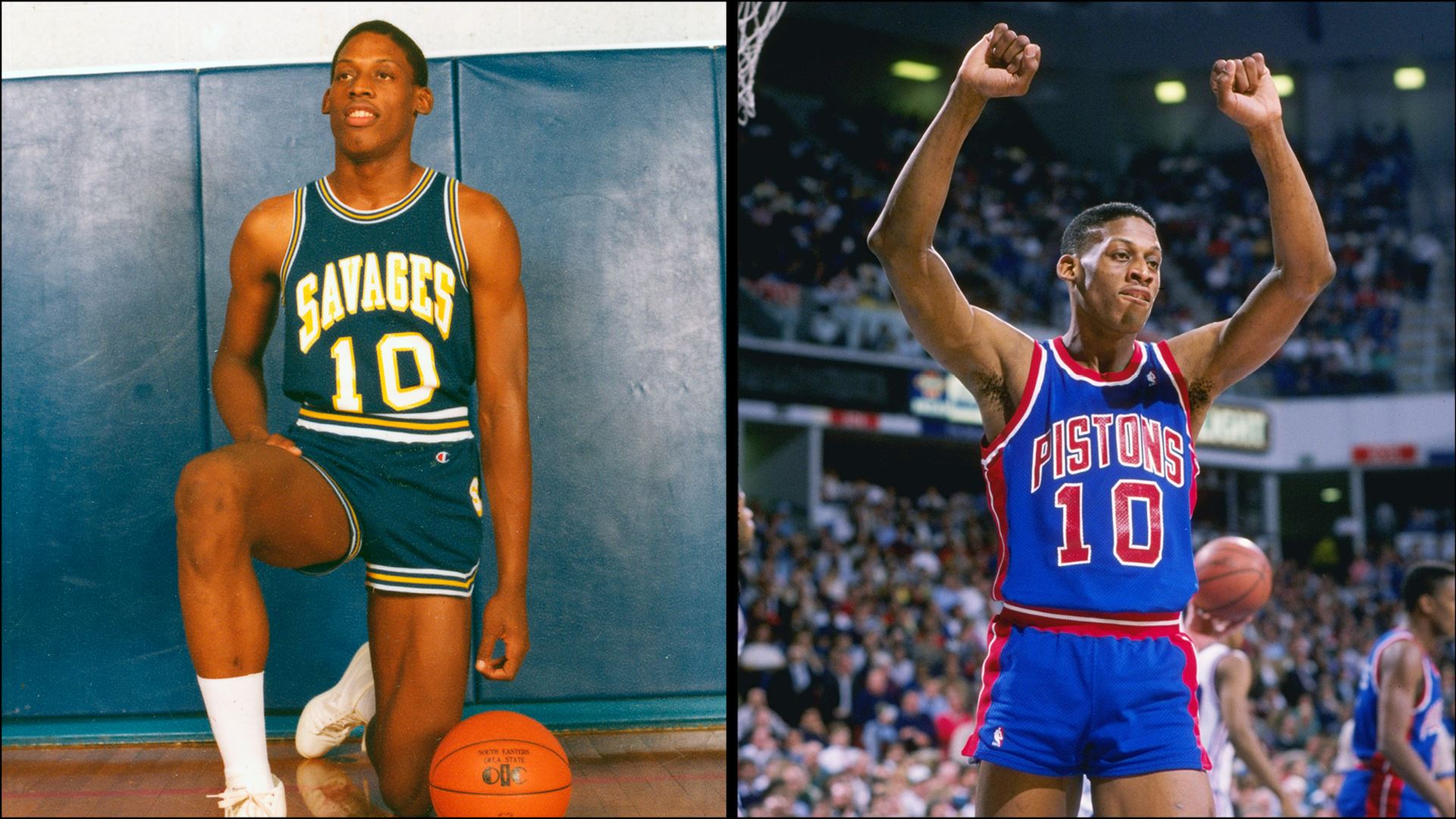
Consider Rodman's background. Born in New Jersey, to his mother Shirley and father Philander; a man who lived up to his name by having between 26 and 47 children, depending on who you believe. As families grow, the attention available to each child necessarily changes and different types of children emerge. The stereotypes of the middle child and the baby begin to take shape - some go out on their own, others act out.
Rodman himself was the eldest of the brood and seemed to resent his absent dad, as the responsibilities of being the eldest sibling weighed. Rodman said of Philander: "some man brought me into this world. That doesn't mean I have a father."
As fate would have it, Rodman happened upon two coaches that were as much father figures, as well as mentors and friends. At the Detroit Pistons and the Bulls, Chuck Daly and Phil Jackson respectively recognised that they needed to allow him that little extra; time, patience, freedom - it was intangible but both men intuitively knew what it was. As Daly says of Rodman's skills: 'You don't put a saddle on a mustang.'
It was a relentless work ethic that separated Rodman. When he was at the Pistons, you could see it in full flow. The renegade put to task in a winning organisation, spoiling opposition plays and doing so with a swagger that fans love and opposition fans love to hate.
'The Last Dance' and place
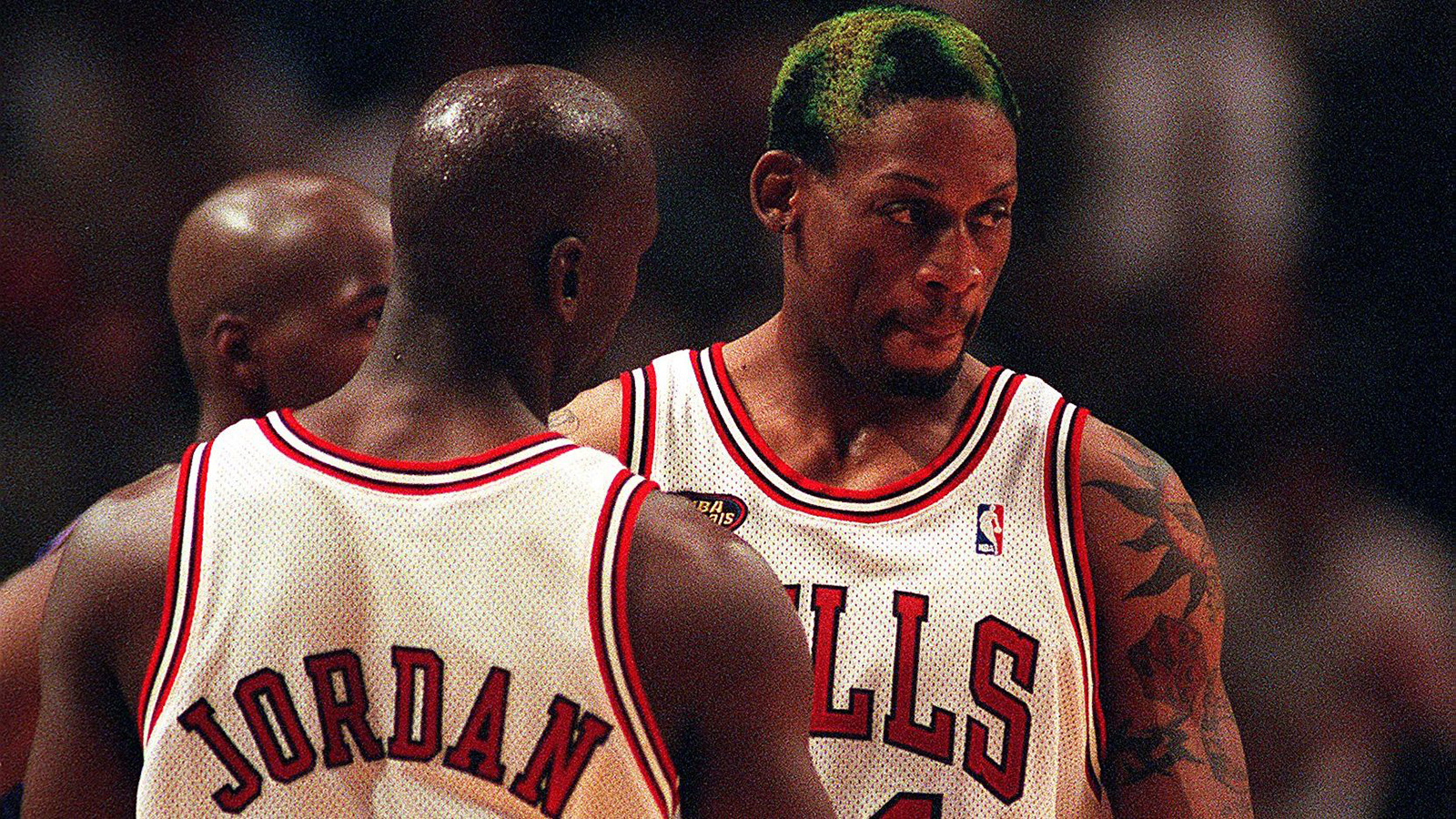
Rodman, like all others, appeared to be looking for a sense of place. Daly's Pistons were known as the 'Bad Boys' for a reason - a tough outfit who wrung everything from themselves and bruised opponents on their way to glory. Rodman knew his role. In many ways he typified the franchise.
Once he made it to the Bulls, his team-mates knew they had someone resilient and dedicated on their hands. Jordan recognised Rodman as both a student of the game and a hard competitor. Interestingly, he seemed to inadvertently pick up on a key aspect of Rodman's persona. Talking about his return after a bender in Las Vegas, Jordan spoke of Rodman blitzing the team in an endurance drill on the court, blazing ahead of the others in a group running contest.
"It was in his psyche. He needed to get away," says Jordan.
One of the themes of the documentary may be the extent to which Jordan could manipulate situations to his advantage. In Rodman's case, Pippen's absence left Jordan without a supporting actor. Jordan was delighted to see Rodman step up and throw his body on the line for the cause; tumbling into the crowds to keep the ball in play and facilitate Jordan. Rodman needed to be needed and Jordan used this to his gain.
However, once Pippen returned, Rodman returned to being the afterthought in the group. Without being melodramatic, a kind of abandonment to which Rodman was becoming too familiar.
Internal strife
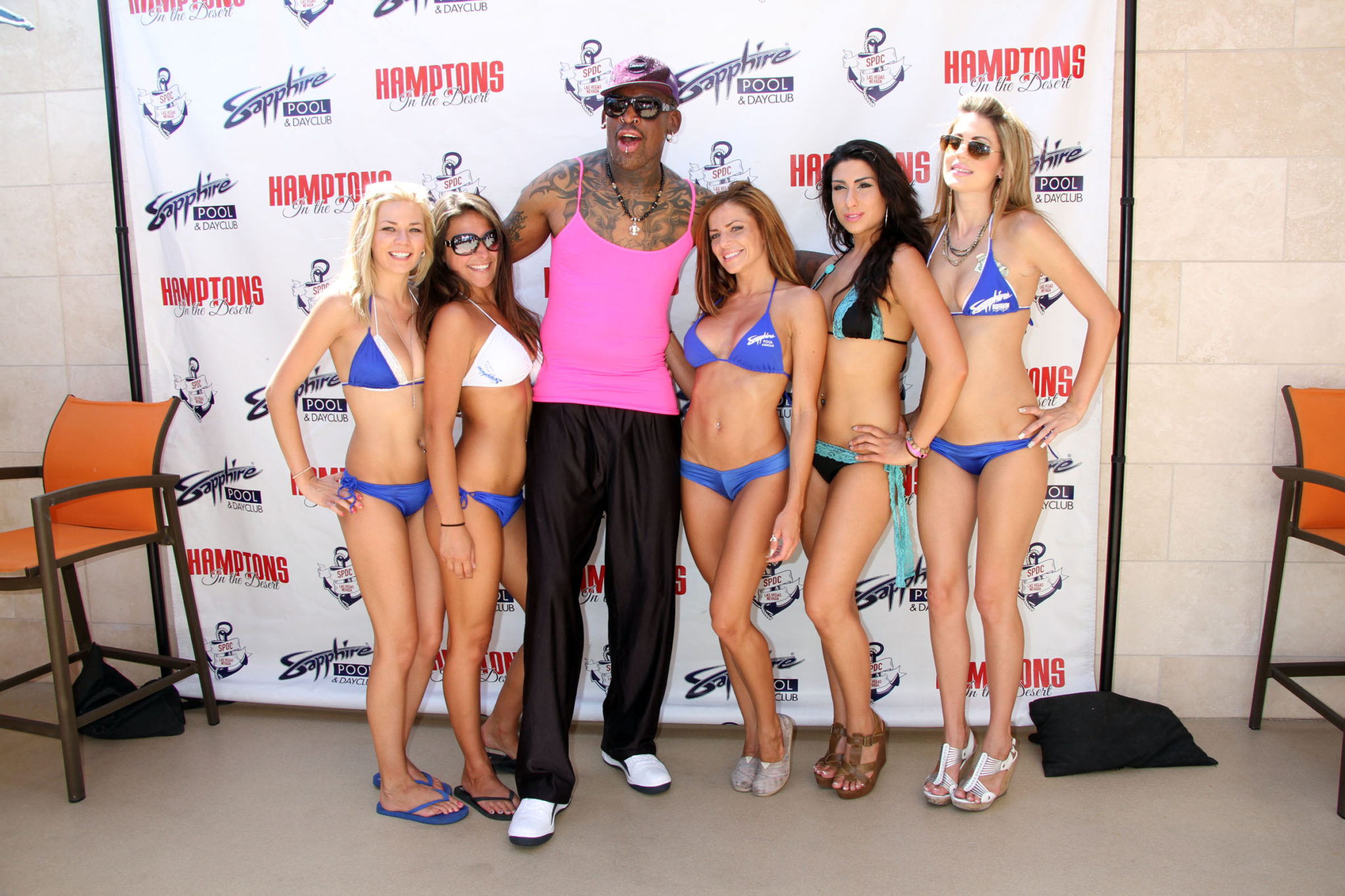
In his management of Rodman, Jackson recognised his unique style and personality. The documentary shows Jackson's invocation of Native American wisdom to connect with him; a connection that seems in no way false. Jackson also saw that his charge had a tendency to self-destruct and that there was some need to release the pressure gauge before a blow-out. Rodman came up hard. You don't survive two years living on the street without it toughening you up, but weakening something else.
Fame is intoxicating and Rodman held court when off it. He occupied a particular space in the American psyche that dallied with celebrity and hated it for never fully accepting him. He was the fodder for E's entertainment channel at a time when Donald Trump was very much in the same cohort - all brash party-goers with hangers-on. Both he and Trump wanted acceptance from an elite that was not forthcoming.
Unlike Trump, however, Rodman's fame came from talent and hard work, rather than something bestowed. He courted fame and celebrity and seemed to hate that he needed it. Even in 'The Last Dance', he says that he would play the sport for free, but needed to be paid for 'the bullshit out there.'
Rodman: out of time?
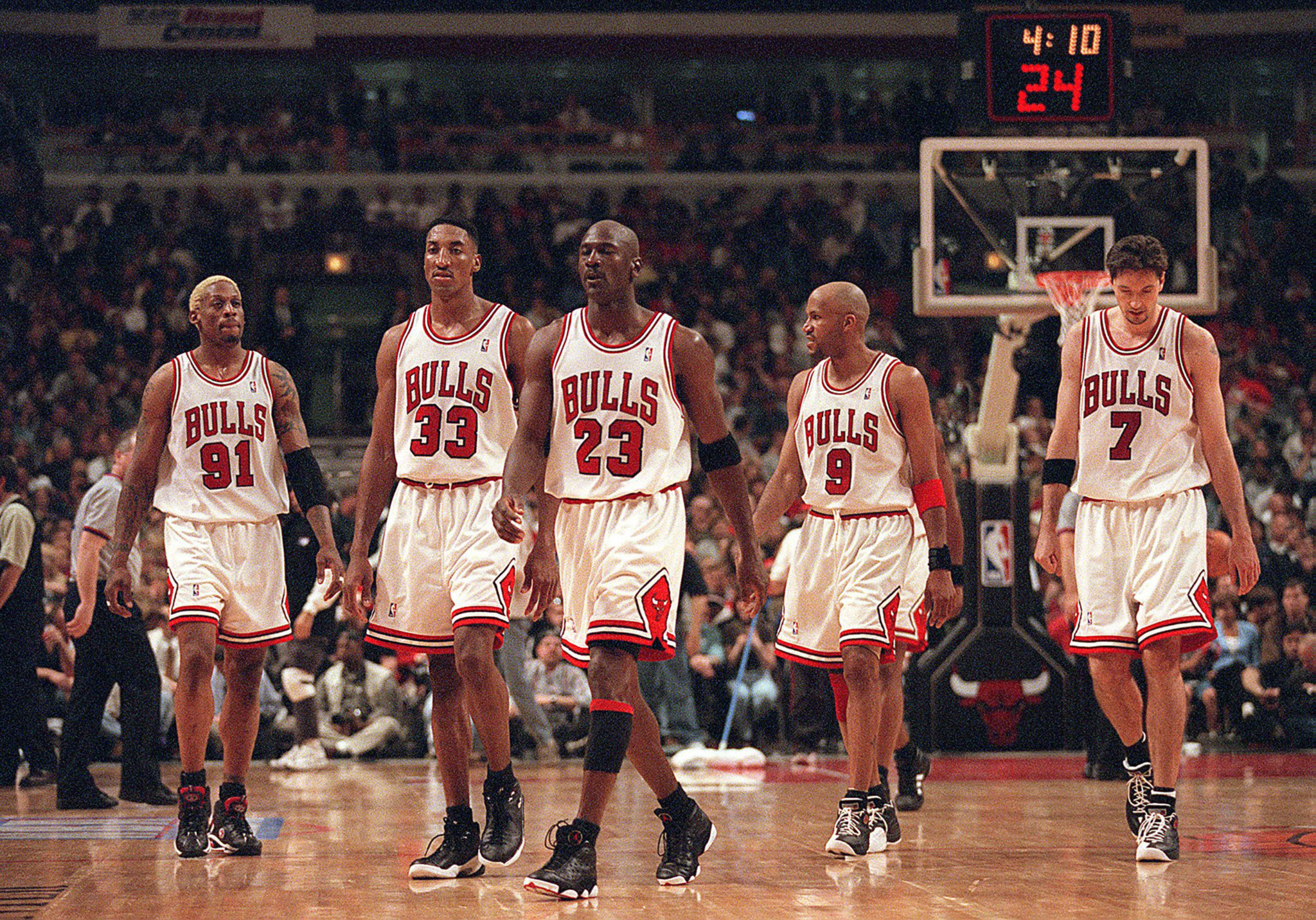 From left, Dennis Rodman, Scottie Pippen, Michael Jordan, Ron Harper and Toni Kukoc were big parts of Bulls teams that won three straight NBA titles from 1996 to 1998. Jordan and Pippen were members of the first "three-peat" team, which won titles from 1991 to 1993. (Photo by Nuccio DiNuzzo/Chicago Tribune/TNS) *** Please Use Credit from Credit Field ***
From left, Dennis Rodman, Scottie Pippen, Michael Jordan, Ron Harper and Toni Kukoc were big parts of Bulls teams that won three straight NBA titles from 1996 to 1998. Jordan and Pippen were members of the first "three-peat" team, which won titles from 1991 to 1993. (Photo by Nuccio DiNuzzo/Chicago Tribune/TNS) *** Please Use Credit from Credit Field ***For anyone confronting change or difference, Rodman should be a totem. When it looked as if the American dream had abandoned him, living on the streets, he kept going to the gym and kept going. He moulded the dream to his dimensions.
People who have worked closely with Rodman generally look at him with a real fondness; a recognition that he leaves everything out there. Pleasant and unpleasant, on and off the court. That was his essence, a non-conformist that was a sight to behold. All angles and graft, going to the nth degree for his team-mates and his coach.
It is the beauty and tragedy of Rodman, that he will always be striving for the limelight and shunning it, looking for a sense of place but not ever feeling at home. It was this internal struggle that helped to drive him forward.
He wants people to accept him for who he is, but it is as if he hasn't yet figured this out for himself.
The paradox endures.
Download the brand new GoLoud App in the Play Store & App Store right now! We've got you covered!
Subscribe to OffTheBall's YouTube channel for more videos, like us on Facebook or follow us on Twitter for the latest sporting news and content.

